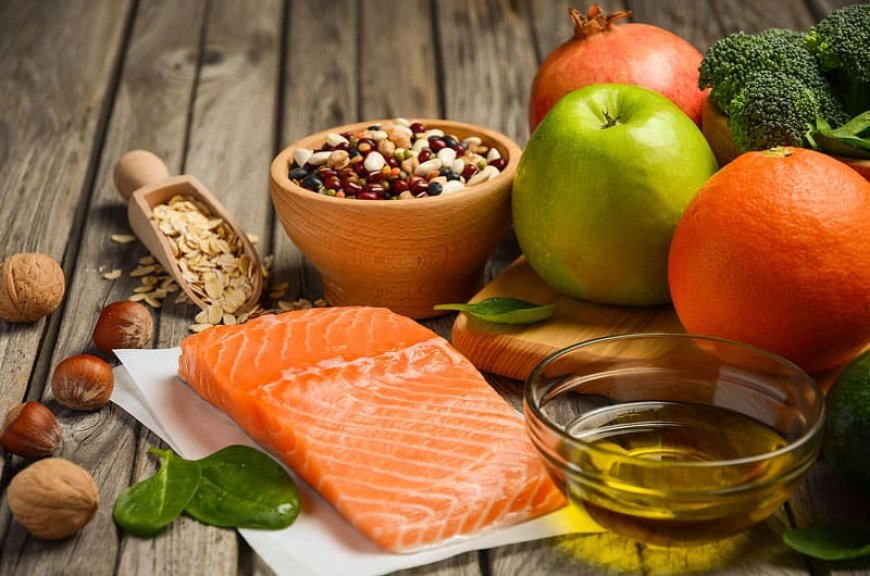Foods to Avoid for Managing Asthma Symptoms
Asthma is a chronic respiratory condition that can significantly impact one's quality of life. While medications and lifestyle changes are commonly recommended for managing asthma, diet also plays a crucial role. Certain foods can exacerbate asthma symptoms, making it essential to be aware of what to avoid.
Asthma Treatments: Red Asthma Inhaler, Blue Inhaler For Asthma
Dairy Products
Dairy products such as milk, cheese, and yogurt are often linked to worsening asthma symptoms. These foods can increase mucus production, which can clog the airways and make breathing more difficult. Additionally, some people with asthma may have a sensitivity or allergy to dairy, which can trigger an asthma attack. It is advisable to limit or avoid dairy products and opt for alternatives like almond milk, soy milk, or other non-dairy options.
Processed Foods and Additives
Processed foods are loaded with artificial additives, preservatives, and flavor enhancers that can provoke asthma symptoms. Sulfites, a common preservative found in processed foods like dried fruits, wine, and canned vegetables, are known to trigger asthma attacks in sensitive individuals. Monosodium glutamate (MSG), often found in fast food, Chinese food, and processed snacks, can also exacerbate asthma symptoms. Choosing fresh, whole foods over processed options can help reduce these risks.
Foods High in Sodium
A high-sodium diet can lead to increased inflammation and fluid retention, both of which can worsen asthma symptoms. Many processed and packaged foods contain high levels of sodium. It is important to read labels and choose low-sodium alternatives. Fresh fruits, vegetables, and lean proteins are better choices that support overall health and help in managing asthma.
Salicylates
Salicylates are naturally occurring compounds found in various foods, including tomatoes, berries, oranges, and certain spices. While most people can consume these without issues, some individuals with asthma may be sensitive to salicylates, which can trigger symptoms. Those with known salicylate sensitivity need to avoid foods high in these compounds and consult with a healthcare professional to identify safe alternatives.
Allergenic Foods
Food allergies can be a significant trigger for asthma symptoms. Common allergenic foods include peanuts, tree nuts, shellfish, eggs, and soy. Consuming these foods can lead to severe allergic reactions and asthma attacks in sensitive individuals. An allergist can conduct tests to identify specific food allergies, enabling individuals to avoid these triggers and manage their asthma more effectively.
High-Fat Foods
A diet high in unhealthy fats, particularly trans fats and saturated fats, can increase inflammation and worsen asthma symptoms. Fast food, fried foods, and baked goods are common sources of these unhealthy fats. Opting for healthier fats such as those found in olive oil, avocados, nuts, and fatty fish can help reduce inflammation and support better respiratory health.
Acidic Foods and Beverages
Acidic foods and beverages, including citrus fruits, tomatoes, vinegar, and carbonated drinks, can trigger acid reflux, which can worsen asthma symptoms. Acid reflux can cause stomach acid to back up into the esophagus, irritating the airways and leading to increased asthma symptoms. Limiting intake of these foods and drinks can help manage both acid reflux and asthma.
Alcoholic Beverages
Alcohol can be a trigger for asthma symptoms in some individuals. Beer and wine, in particular, contain sulfites, which can provoke asthma attacks. Additionally, alcohol can cause dehydration and increase inflammation, both of which can worsen asthma symptoms. Reducing or avoiding alcohol consumption can be beneficial for those with asthma.
USA's Leading pharmacy store: Genericvilla
Artificial Sweeteners
Artificial sweeteners like aspartame and saccharin, commonly found in diet sodas and sugar-free products, can trigger asthma symptoms in sensitive individuals. These substances can cause allergic reactions and inflammation, leading to respiratory issues. It is advisable to choose natural sweeteners such as honey or stevia as safer alternatives.
Conclusion
Managing asthma involves a comprehensive approach that includes medication, lifestyle adjustments, and dietary considerations. Avoiding the foods mentioned above can help reduce asthma symptoms and improve overall respiratory health. As always, it is essential to consult with a healthcare provider to tailor dietary choices to individual needs and ensure the best management of asthma.







